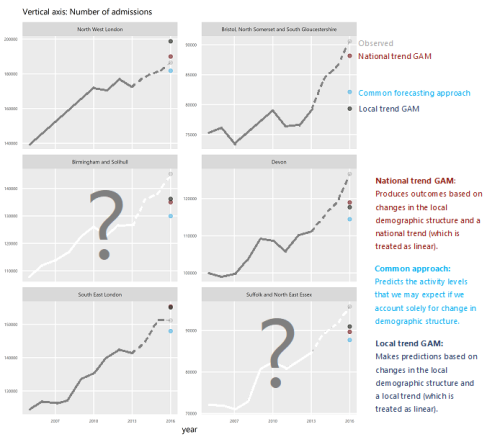In this blog, Fraser Battye makes the case for localism in the NHS. He tells four short stories. He suggests that these stories highlight an opportunity as the NHS enters a period of reform.
The first story comes from a conversation I had with the Chief Executive of a clinical commissioning group (CCG). I have some background in economics and I wanted to find out how the CCG went about distributing its considerable resources. The answer shocked me.
“We list all the national ‘must dos’ and allocate money to them. Then we argue about the small amount that's left”.
On this account, CCGs were not making commissioning decisions at all. They were administrating and monitoring decisions made elsewhere. It is hard to see how they could then feel accountable to, or even maybe part of, their local population.
The moral of this story? Local leaders have strong incentives to ‘face up’ - to satisfy regulators and national decision makers - rather than ‘face out’ to their population. And national instruction crowds out local initiative.
The second story is from Wigan and Frome. Both areas present tales of locally defined and locally driven success. They are well-worn case studies, the detail of which is rehearsed elsewhere*.
At heart, the examples of Wigan and Frome show the power of the relationship between local decision makers and the populations they serve. In both cases, success was achieved because decision makers and services engaged – adult to adult - with their population. People were treated as citizens with a stake, not as consumers with a right.
The moral here is that these relationships are best created locally. National conversations of this type are impossible. It is also dispiriting that Wigan and Frome stand out as examples: they broke a mould that should not exist.
The third story comes from when I saw Andy Burnham speak at the Kings Fund. The speech was remarkable. Not so much for its content, although that was good, but for the sheer lack of ideology and party politics. As mayor of Greater Manchester, Burnham clearly saw his job as pragmatically addressing the practical problems facing the population that elected him.
The moral here is not that local politics is easy, or even less political. But it suggests that local decision making can be more practical, and less ideological, than its national equivalent.
The fourth and final story comes from 1974. In that year, Friedrich von Hayek won the Nobel Prize for Economics. His speech - The Pretence of Knowledge – should be required reading for decision makers in the NHS.
Hayek argued that complex systems contain shifting and rapidly evolving problems. And that no central authority can possess sufficient knowledge to address them effectively. But distant decision makers can delude themselves into thinking they could, if only they just had more information...
Hayek spoke before the arrival of big data and apparently all seeing ‘dashboards’. But he would have seen their power to create the illusion of knowledge, rather than solving the problem. He would also advocate for practical, experiential and local knowledge. The moral of this story is the need for humility in the face of complexity. No-one can know enough.
Current NHS reforms: an opportunity for localism?
For me, these four stories combine into a compelling case for localism. This case is bolstered by the UK's performance under the Covid pandemic. Political reckoning has begun, including commentary on the role of local and national powers. ‘Levelling up’ and ‘taking back control’ also require decentralisation of power.
My hope for the forthcoming NHS reforms, expressed in the White Paper, is that this opportunity can be seized. The signs are unclear. There is a desire to integrate services and decision making at the local level; this is alongside a drive to increase national political accountability. This creates a local-national tension; a tension which Nigel Edwards suspects will be resolved one way:
“…history suggests that fine talk of devolution and allowing different solutions can easily give way to a temptation to specify ever more detail and to issue ever more “helpful” guidance”. **
We are some way from a mature debate about localism and devolution. England in particular remains unusually centralised for a developed nation. But proposed reforms to the NHS create something of an opportunity. It is then for those of us who see a case for increased localism to make the argument. I hope the four stories above make some contribution to this.
* See, for example, the Kings Fund report on the 'Wigan Deal' and various descriptions of the Frome model of primary care here.
** Nigel Edwards BMJ blog: ‘After the market—what do the proposed new plans mean for the NHS?’ here.


